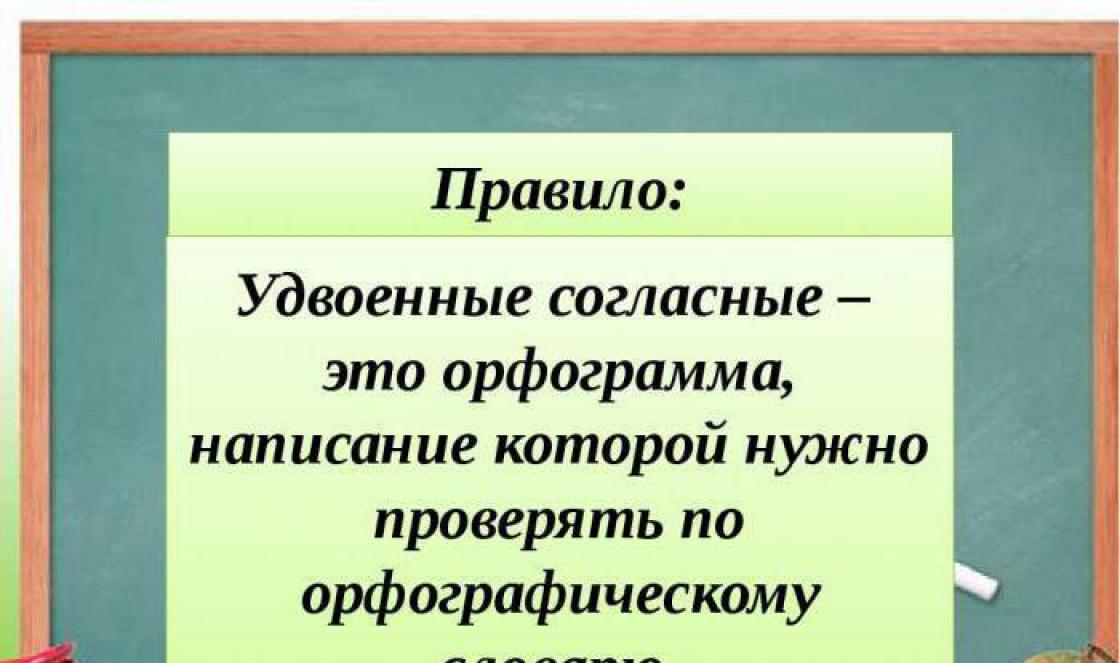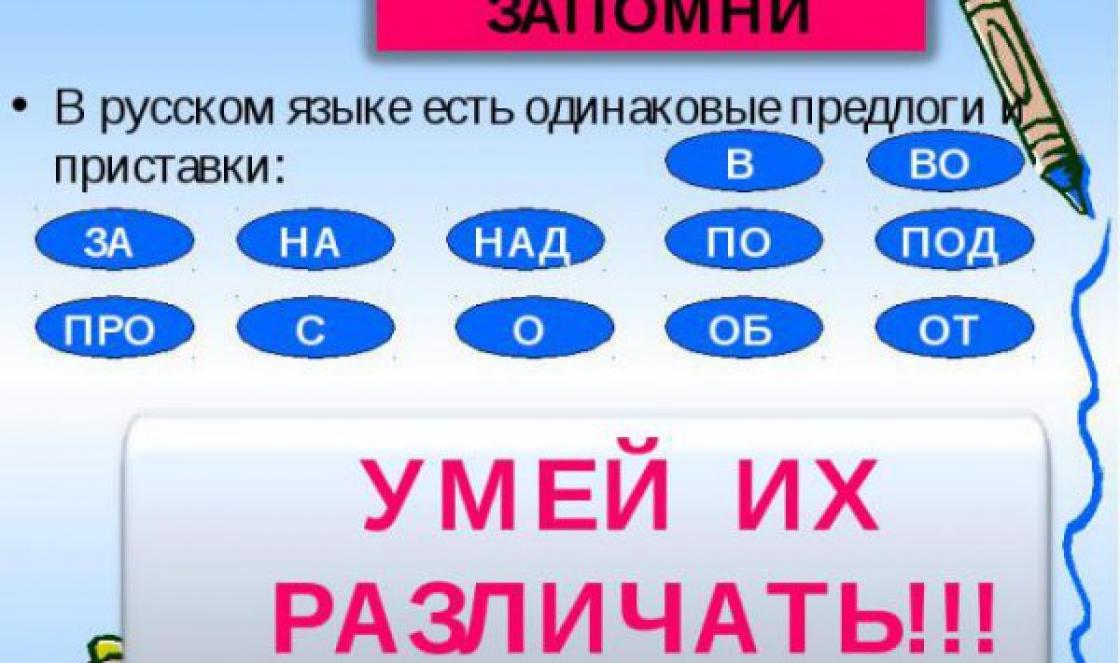Basic English (basic English) is already worth falling in love with, if only for the fact that it is enough to learn only 850 words to study it. Oddly enough, this amount is quite enough to communicate easily and naturally with a resident of any English-speaking country. Of course, if you need English for the profession of a translator or reading Wilkie Collins in the original, then welcome to the philological faculty or very serious courses. However, if your goal is simply to own international language, then welcome to this article!
For greater simplicity, 850 words are divided into main groups:
1) objects and phenomena (600 words, of which 400 are general, and 200 are designations of objects);
2) action or movement (100 words);
3) an expression of quality (150 words, of which 100 are common and 50 have an opposite meaning).
Particularly pleasing is the fact that out of 850 basic words, 514 have only one syllable! This is not a conservationalist or something worse. Already rubbing your hands in anticipation of the Basic dictionary? Please.
1. OBJECTS AND PHENOMENA
If we act according to the “from simple to complex” method, then the minimum lexicon can be learned from picture words. There are 200 of them. You can stick stickers all over the apartment (if the household does not go crazy by taking an apple with a piece of paper “apple” from the refrigerator). Or cut out pictures from books. Or download images on the Internet and print them with captions (by the way, you can scroll through them in queues or traffic jams). And here is a ready-made list with pictures on Wikipedia.
1.1. 200 picture words:
It is most convenient and fastest to divide these basic words into 6 groups according to their meaning: body parts, food, animals, transport, objects, etc. If you study at least 2 groups every day, then in three days you can master the basic vocabulary. The main thing is not to lose your knowledge and consolidate it in practice. For this, any acquaintance who agrees to become an evil examiner or pretends to be a dunno who is interested in everything is suitable.
U:
umbrella - umbrella
1.2. 400 common words:
To make it easier to learn this string, let's not reinvent the wheel. You can, of course, suffer and divide all the words into semantic groups, but there will be so many of them that some will contain only one or two terms. It's easier to learn alphabetically. For each letter - about a dozen words. If you bend over a piece of paper for 10 minutes at least three times a day, you can learn at least 3 letters a day. The maximum depends on your goals and desires.
| page - page pain - pain, hurt paint - paint, draw, paint paper - paper part - part, separate, separate paste - stick, paste payment - payment peace - peace person - person place - place, place, take place, place plant - plant, plant, plant, sow |
play - play pleasure - pleasure point - point, point, indicate poison - poison, poison polish - to polish porter - doorman, porter position - place, position powder - powder power - strength, power price - price print - print |
process - process, process produce - product, produce profit - profit, make a profit property - properties prose - prose protest - object, protest pull - tension, pull punishment - punishment purpose - intend, goal push - push, push |
| quality - quality, quality | question - question |
| salt - salt, salt sand - sand scale - measure, scale science - science sea - sea seat - seat, seat, place secretary - secretary selection - selection self - himself sense - feeling, meaning, meaning, feel servant - servant sex - sex, gender shade - shade, shadow, hatch shake - shake, shake, tremble, shake shame - shame, shame shock - shock, shake side - side, adjoin sign - sign, sign, sign silk - silk silver - silver |
sister - sister size - size sky - sky sleep - sleep slip - slip, blank, slip, slide slope - slope, slope smash - hit, break smell - smell, smell smile - smile, smile smoke - smoke, smoke sneeze - sneeze, to sneeze snow - snow soap - soap, soap society - society son - son song - song sort - view, sort sound - sound soup - soup space - space, space |
stage - stage, stage, organize start - start statement - statement steam - steam, bathe, move steel - steel step - step, step stitch - stitch, stitch stone - stone stop - stop, stop story - history stretch - segments, stretch, stretch structure - structure substance - substance, essence sugar - sugar suggestion - suggestion, suggestion summer - summer support - support, support surprise - surprise swim - swimming, swim system - system |
Y:
year - year
2. ACTION AND MOVEMENT (100 words)
This list miraculously included words that, it would seem, do not fit the concept of “action” at all: pronouns, polite phrases. Well, what did you want? Try asking someone to make a move without "please let him go northeast for the star".
You can learn alphabetically. And it can be divided into parts of speech: verbs, pronouns, prepositions, etc. Prepositions are easy to remember if you use a diagram. Draw a square on a sheet of paper in the very center and indicate the movement with dots or arrows. For example, the preposition in is translated as "in" - put a dot in the square and sign it in. And, for example, out is translated as "from" - put an arrow from the square.
| come - come, arrive get - get, force give - to give go - walk, go keep - continue, keep, leave, prevent let - allow make - do / do, force put - put seem - seem, appear take - take / take be - to be do - to do have - to have, to eat, to know say - to speak see - see send - send may - be able will - to be wanting about - about across - through after - after against - against among - among at - in before - before between - between by - to, in accordance with, for, on down - down from - from in - in off - away from on - on over - by through - through |
to - to, before, in under - under up - up with - with as - since, as for - for of - from, oh, from till - until, until than - than a - any, one, each, some the all - everything, all any - anyone, nobody every - every no - no, no other - other some - some, a little such - such, thus that - what this - this, this i - i he - he you - you, you who - who and - and because - because but - but or - or if - if though - although while - while how - how when - when where - where, where, from where |
why - why again - again ever - ever, never far - farthest forward - send, forward here - here, here near - near, about now - now, now out - outside, outside still - still then - then there - there, there together - together well - well, much almost - almost enough - enough even - still, even little - small much - a lot not - not only - only quite - quite so - so very - very tomorrow - tomorrow yesterday - yesterday north - north south - south east - east west - west please - please yes - yes |
3. EXPRESSION OF QUALITY (150 WORDS)
3.1. General (100 words)
This is probably the most enjoyable part of the vocabulary. Without adjectives, the language would be too bland and formal. You can learn alphabetically. Or you can find images of objects or photographs of people and write on reverse side whatever you think of them. Feel free to express yourself. The more adjectives you use from the list, the faster you will learn.
| important - important |
3.2. Opposites (50 words)
The easiest way to learn words quickly is to find antonyms. You already said everything about different people on photos? Change your gaze and use adjectives that are opposite in meaning. Or simply write down first the designation of quality from paragraph 3.1., And through a hyphen - the opposite in meaning from paragraph 3.2.
That's all. Congratulations! You have a basic vocabulary. And it will be quite enough for communication. It remains only to learn how to add these very necessary words into offers. Welcome to Grammar!
Starting to teach foreign language many are asking: How to learn a language quickly?
Indeed, how can one learn such a rich language, such as English, whose vocabulary includes more than 500,000 words? Incredibly huge number! The answer to this question would be: Reduce the vocabulary of the language you are learning to the necessary minimum!
This is possible and even easier than it seems at first glance. I will try to convince you of this.
Only 40 correctly identified, high-frequency words cover about 50% of word usage in everyday speech in any language! And 400 words will cover about 90%.
This is not just empty talk, these statistics were revealed by the famous Swedish polyglot and author of the book "The Art of Learning Languages" E.V. Gunnemark.
Yet, when we begin to learn a language unknown to us so far, it becomes necessary to choose this basic vocabulary. There are several options for how to do this:
- look in the frequency dictionary
- use phrasebooks
- resort to computer tutorials, etc.
When learning English, you do not need to do independent searches, because there is already a wonderful dictionary "Basic English" by Charles Ogden.
The history of the creation of the Basic English language
At the beginning of the twentieth century, the need for international communication prompted the idea of creating a language that would be understandable and easy to learn for everyone. Thus, the British linguist Charles Ogden created a new artificial language by simplifying the existing English, which was called Basic English(Basic English). Basic translated as "basic", but there is another interpretation of the choice of such a name - the decoding of each of the letters, which in translation means British American Scientific International Commercial.
Grammatically new language practically no different from the standard British. But his vocabulary is only 850 tokens!
Vocabulary Basic English
The dictionary included
- 600 nouns, of which:
- 400 are general concepts, for example, such as:
act - action
answer - answer
Belief - faith
Earth - earth
End - end, etc.- 200 words - descriptive, that is, those that help describe what surrounds us, such as:
baby - baby
bridge - bridge
door - door
Moon - the moon
Tree - tree, etc. - 150 adjectives, of which:
- 100 common adjectives, for example:
Automatic - automatic
Complex - complex
Possible - possible
Medical - medical
Wise - wise, etc.- 50 - adjectives-opposites:
Bad - bad
Cold - cold
Different - unlike
Small - small
Wrong - erroneous, etc. - 100 other parts of speech
These 100 words included only 18 verbs, and the remaining 82 are prepositions, conjunctions, pronouns and adverbs.
You are rightly wondering how it is even possible to reduce the English vocabulary so much, turning 500,000 into 850. The answer lies in the fact that in English 300,000 words are terms. Indeed, practice shows that these 850 words of Basic English are enough to express and understand an English speaker when it comes to everyday speech. You will not be able to understand literary texts well, but the first stage of learning a language does not require this. The main thing is to start speaking and understanding English, and this is the first obstacle that needs to be overcome.
Modern revisions are also interesting, in which such a main drawback of Ogden's dictionary as some spontaneity and unsystematic nature is corrected. Recently, categorized Basic English dictionaries have appeared.
Basic English language learning program
Nowadays, computerization has been closely introduced into the spheres of human activity, it is not surprising that it has touched the learning process as well. I lead to the fact that the Basic English program was created.
Basic English is a program for learning the basic 850 English lexemes, it makes it possible to quickly and efficiently learn them. To date, there are already several versions of the program: 1.0, 1.1, 2.0.
When opening the program, you choose which section of the dictionary you want to learn:
- Objects and phenomena (600 nouns)
- Words that convey qualities (150 adjectives)
- Words expressing actions and movements (100 different parts of speech)
By selecting a section, you proceed directly to the study. Each word is followed by a transcription, Russian translation and its correct audio pronunciation below.


After studying, you can also take a test to test your accumulated knowledge. At your choice, testing will be offered with or without prompts. You have the opportunity to choose the type of verification between the three options "English-Russian", "Russian-English" and mixed.
This way of learning the starting vocabulary is very effective and interesting.
Good luck!
Download basic dictionary Basic English dictionary Basic English
Video: Enlarge vocabulary
Basic English grammar, 4 edition, Betty Azar, 1996.
Basic English Grammar remains a developmental skills text for students of English as a second or foreign language. Serving as both a reference and a workbook, it introduces students to the form, meaning, and usage of basic structures in English. It provides ample opportunities for practice through extensive and varied exercises leading to communicative activities. Although it focuses on grammar, it promotes the development of all language skills.
Examples.
Find the VERB in each sentence. Pronounce it. Then read the sentence aloud.
7. My child often claps her hands.
8. Olga always bites her pencil in class.
9. Maria usually gets up at seven-thirty.
10. Yoko asks a lot of questions in class.
11. Ahmed always talks in class.
12. Sue coughs because she smokes.
Then switch roles, with Student B saying five things about Student A’s appearance.
2. student a: Ask Student B five questions about things s/he has and doesn’t have (for example, a car, a computer, a pet, children, a TV set, a briefcase, etc.).
student in: Answer the questions.
Example:
student a: Do you have a car? student in: No.
student a: Do you have a computer.
student in: Yes, but it's not here. It's in my country.
etc.
Free download e-book in a convenient format, watch and read:
Download book Basic english grammar, 4 edition, Betty Azar, 1996 - fileskachat.com, fast and free download.
- Basic english grammar, 3 edition, Betty Azar, 2006- Basic English Grammar is a beginning level ESL EFL developmental skills text in which grammar serves as the springboard for … English language books
- English, Book for reading, Grade 8, Textbook for educational organizations, Kuzovlev V.P., 2019- The book for reading is an integral part of the educational and methodical set English for students of the 8th grade of educational institutions. In a book to read... English language books
- English, Book for reading, Grade 7, Textbook for educational organizations, Kuzovlev V.P., 2019- The book for reading is an integral part of the educational and methodical set English for students of the 7th grade of educational institutions. It contains material… English language books
- Paths to the World, English for preschoolers, Manual for children aged 5-6, Part 2, Klementyeva T.B., Bouma E., 2013- In the second part of the manual, the introduction of preschoolers into the world of modern in English. Children get acquainted with the topics of Body Parts, Weather ... English language books
The following tutorials and books:
- Essential Grammar in Use, Supplementary Exercises, 2 edition, Helen Naylor, Raymond Murphy, 2007 English language books
- Essential Grammar in Use, Supplementary Exercises, 1 edition, Helen Naylor, Raymond Murphy, 2012- This book is for elementary (and lower intermediate) students who want extra practice in grammar. It covers most of the … English language books
- English Grammar in Use, Supplementary Exercises, Louise Hashemi, Raymond Murphy, 2012- English Grammar in Use Supplementary Exercises offers extra practice of most of the grammar points covered in English Grammar in … English language books





